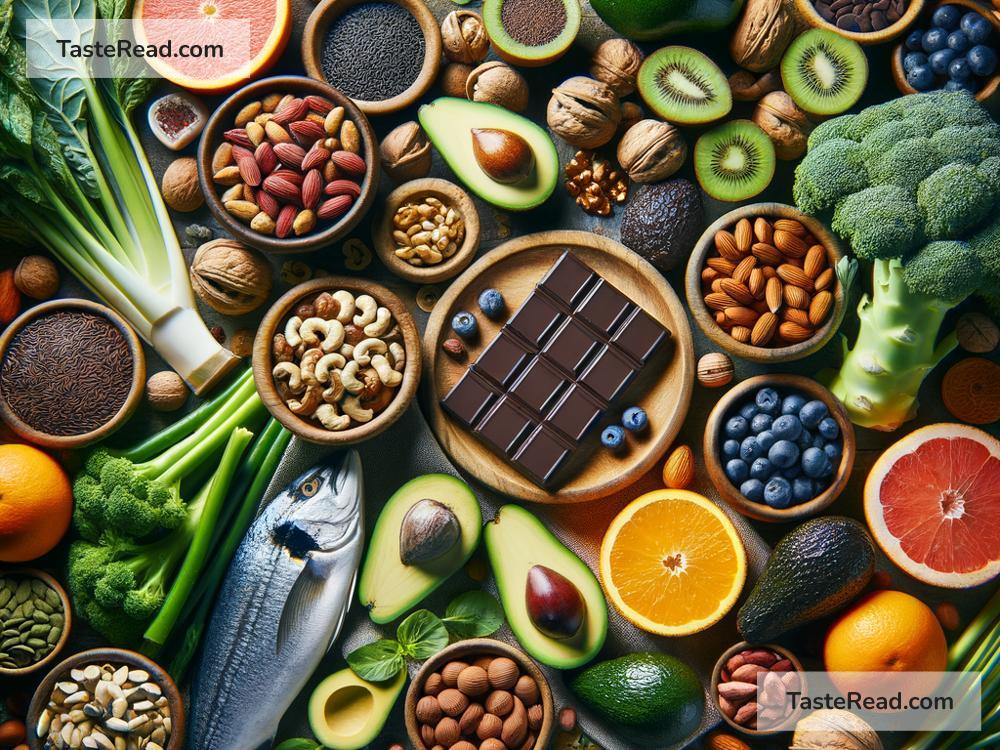Foods for Reducing Mood Swings: Eat Your Way to a Happier You
We’ve all had days when our emotions feel like a roller coaster—happy one minute, upset the next. This is what we call mood swings. While mood swings can happen for a variety of reasons, including stress, hormonal changes, or sleep issues, your diet also plays a big role in how you feel. The good news is that eating certain foods can help improve your mood and reduce those ups and downs. Let’s look at some simple and tasty food options that can help you feel more steady and balanced.
1. Whole Grains for Steady Energy
Whole grains like oatmeal, brown rice, quinoa, and whole wheat bread are excellent for keeping your energy and mood stable. These foods are rich in complex carbohydrates, which slowly release energy into your body instead of causing sudden sugar spikes. When your blood sugar levels stay steady, it can help prevent feelings of irritability or fatigue.
Additionally, whole grains contain B vitamins, which are vital for brain health. B vitamins like folate and B12 improve the production of “feel-good” chemicals in your brain, such as serotonin. So, swapping your white bread and sugary cereals for fiber-rich whole grains might be a simple step toward feeling calmer throughout the day.
2. Leafy Greens for Brain Boosts
You’ve probably heard that leafy greens like spinach, kale, and broccoli are good for your physical health—but did you know they also support your mental health? These greens are packed with magnesium, a mineral that helps regulate emotions and can reduce feelings of stress or anxiety.
Moreover, leafy greens contain antioxidants, which protect your brain cells. Since mood swings can sometimes be triggered by inflammation in the brain, eating foods that fight inflammation can make a big difference. Sneak more greens into your diet by blending them into a smoothie or adding them to pasta sauces.
3. Fatty Fish for Omega-3 Mood Power
Fatty fish like salmon, tuna, and mackerel are loaded with omega-3 fatty acids, which are essential for brain health. Omega-3s improve communication between brain cells and help keep your mood steady. Studies show that these healthy fats can reduce symptoms of depression, anxiety, and mood swings.
If you’re not a fan of fish, you can add omega-3-rich foods like walnuts, flaxseeds, or chia seeds to your diet. Or, consider talking to your doctor about taking an omega-3 supplement for an extra boost. Your brain will thank you for it!
4. Fermented Foods for Gut Health
Believe it or not, the bacteria in your gut can influence your mood. Fermented foods like yogurt, kefir, kimchi, sauerkraut, and miso contain probiotics—live bacteria that promote a healthy gut. When your gut is happy, your brain is more likely to be happy too. Scientists call this connection the “gut-brain axis.”
Probiotics from these fermented foods may increase the production of serotonin, one of your brain’s key mood-regulating chemicals. Incorporating a serving of yogurt or kimchi into your daily meals might help you feel less irritable and more upbeat.
5. Nuts and Seeds for Stress Relief
Nuts and seeds are small but mighty when it comes to reducing mood swings. Almonds, sunflower seeds, and walnuts are full of nutrients like magnesium, zinc, and healthy fats. Magnesium helps calm your nervous system and reduce feelings of stress. Zinc contributes to brain function, including the regulation of emotions.
A handful of nuts or seeds makes a great snack, and you can sprinkle them onto salads, oatmeal, or smoothies for added crunch and nutrition.
6. Dark Chocolate for a Happier Mood
Yes, chocolate can be good for you—if you choose the right kind! Dark chocolate (70% cocoa or higher) contains compounds like flavonoids that boost brain function and mood. It also has a small amount of caffeine and theobromine, which can provide a mild energy boost and improve focus.
Dark chocolate helps your brain release dopamine, also known as the “pleasure hormone.” Just enjoy it in moderation—about one ounce a day—so you don’t overdo it on sugar.
7. Fruits for Natural Sweetness
When you’re craving something sweet, reach for fruits like bananas, berries, oranges, and apples. Not only are they delicious, but they’re also full of vitamins, minerals, and antioxidants that support your mental health.
Bananas, for example, are rich in vitamin B6, which helps produce serotonin. Berries like blueberries and strawberries contain antioxidants that reduce inflammation in the brain, leading to better mood balance. As a bonus, fruits are hydrating and naturally low in calories, making them a guilt-free snack.
8. Herbal Teas for Relaxation
If you need to calm your mind after a hectic day, try sipping a cup of herbal tea. Chamomile tea is especially soothing and has been shown to reduce feelings of anxiety. Green tea contains an amino acid called L-theanine, which promotes relaxation without drowsiness.
Drinking tea is also a comforting ritual, which can help signal your body to unwind and reset. Add a dash of honey or lemon for a flavor boost.
Final Thoughts: Fuel Your Mind and Mood
The foods you eat have a powerful effect on your emotional health. By including foods like whole grains, leafy greens, fatty fish, fermented foods, nuts, dark chocolate, fruits, and herbal teas, you’ll be giving your body and brain the nutrients they need to stay balanced.
Keep in mind that mood swings can also stem from other causes, like lack of sleep, dehydration, or hormonal changes. So, if you’re experiencing frequent mood swings, it’s helpful to check in with a doctor or therapist for support. In the meantime, start with these delicious foods as a simple, natural way to manage your mood and brighten your day. Happy eating! 😊


